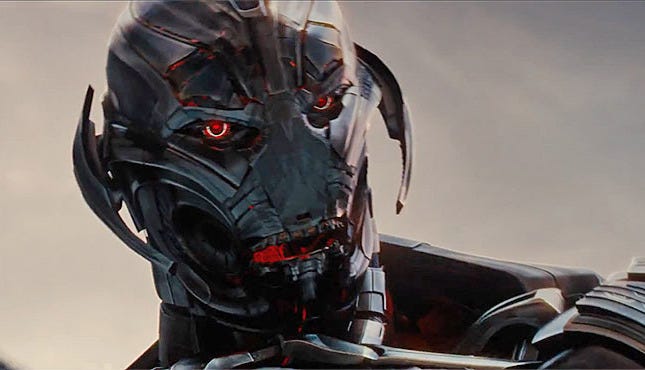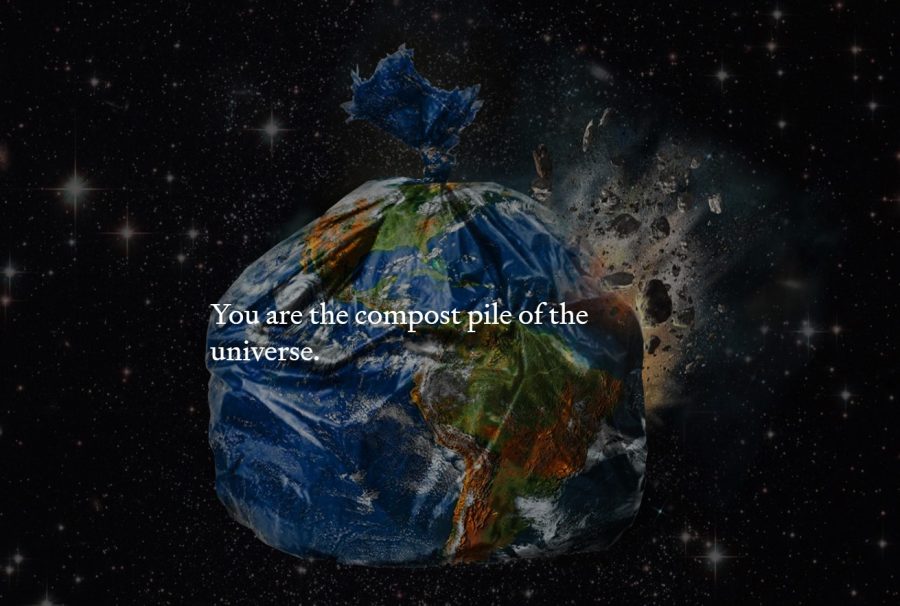You are the compost pile of the universe.
The plastic fork, a tool of modern society so pervasive most of us over look its use - unless you happen to find yourself without one during your routine lunch break.
The plastic fork, a tool of modern society so pervasive most of us over look its use — unless you happen to find yourself without one during your routine lunch break. Between scrolling through your phone and shoveling that burrito bowl from Chipotle into your mouth before your 30 minutes of allotted freedom are up, have you ever considered that the little, white, pliable utensil in your hand is a microcosm of the death and decay of the universe itself?
Before you dismiss this as totally morbid hyperbole and click off, lets travel back in time between 180 and 140 million years ago, the Jurassic era, when towering plant-eating giants roamed the earth — ok, this might be complete and total hyperbole B.S. At the very least you’ll better understand the role you play in the compost pile of the universe.
It is in the Jurassic Period when vast amounts of the oil we use today was first formed from the dead and decaying organic matter trapped in the rock and subjected to extreme pressures. Therefore, rightly so, it is the origin of the fork, your fork, and all plastics for that matter.
On a side note: If you are ever bored in your mundane morning commute, just remember that your car is fueled by dead organisms in the form of petroleum that have been long extinct and will never be seen ever in the universe. Your car literally runs on death and decay.
The oil is extracted on either land or sea, or conflict zone, and transported on vehicles and vessels (that also run on oil), to a plastic production plant in the U.S. or China where the oil becomes a polymer (multiple molecules linked together), and the polymer becomes a liquid, and the liquid becomes your Chipotle fork. Fun fact: plastic production workers (usually poor, third world women) are exposed to large levels of carcinogens that increase the risk of cancer, neurological damage, and birth defects.
Your fork, along with other forks, is packaged in plastic made of even more oil, and shipped to your local plastic cutlery warehouse on diesel trucks that run on oil as well. Eventually it ends up in your Chipotle bag. You use this tiny tool of death and decay to shovel that carnitas burrito bowl with extra “guac” into your mouth. And just like a condom (with a similar production cycle but a much more fulfilling use), you throw away that tool meant for a one-time use.
Except, that one time use will take several thousand years to decompose in a landfill along with everyone else’s one time uses.
Now back to that hyperbole about the fork being a microcosm for the death of the universe. To better understand, you have to know two very basic principles of thermodynamics (heat and energy). One: energy is neither created nor destroyed, it just changes from one form to another. In a nutshell, the total energy we have in the universe is a fixed amount. The second rule is so obvious, it makes you wonder why it took thousands of years to figure out: heat transfers from hotter to cooler, never from cooler to hotter… Told you!
But this one directional (We’re only getting older, baby. And I’ve been thinking about it lately. Does it ever drive you crazy just how fast the night changes?) flow of energy has very deep implications for the universe itself. It means that since the beginning of the universe, energy moves from order to chaos like the plot to The Avengers: Age of Ultron.

Energy is essential to building civilizations. But the more we use it, the more we speed up the process of degradation at the planetary level. For example:
Your car turns gas (energy that is in order) into heat, sound, and motion (randomized energy that can not be used for anything else — disorder) that dissipates into the environment. In the same way you turn food into motion, heat, and well, gas. Your farts are disorder itself. That burrito bowl fueled your body and allowed you to work that 9 to 5, but that bad gas you let out in the office is released into the planet never to be reused and repurposed.
The break down of matter into unusable energy is happening in the universe all at once. The universe began to decay the minute it was born, just like you.
You are part of the compost pile of the universe.
This process is called entropy, the measure of the disorder of things, and it is happening at the universal level as well. Entropy is a technical way of saying that everything in the universe, including the universe itself, will eventually breakdown and die.
Entropy, like herpes, is irreversible. You can’t turn the energy you used up at work, your farts, and your burps back into that burrito bowl. Just as you can’t turn the one hundred billion galaxies in the universe back into the energy at the beginning of the Big Bang.
The universe will share the same fate as the plastic fork, through the combined processes of nature, the universe will break down into forms of energy that will never be used to create anything new; because left to itself, the universe will always lean to chaos. At some point, the universe will achieve maximum entropy.
But if the universe began to die the second it was created, why do complex life forms exists on Earth and possibly everywhere else?
Well, complexity arises out of chaos, not order. In a weird paradoxical kind of way, if the universe didn’t lean towards death and decay, and everything had order, the universe would look right now as it did the exact moment it was created with no possibility of change. This would mean no creation of the galaxy, our solar system, earth, and no possibility of all life that has lived or will ever live on this planet existing.
Other than morbidly predicting that everything in the universe — even the universe itself — has an expiration date, entropy has very useful applications in the real day-to-day world. It’s possible to harness the flow of order to disorder to create new sustainable systems and designs.











